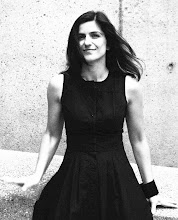Why Thesis Lab?
Thesis
Lab follows a learning-through-making
pedagogy that integrates research, critical theory, individual voice, and
hands-on collaborative work. Influenced by Bruno Latour’s theories on
laboratories, and Jacques Rancières’ theories on education and emancipation the
course is developed around the duality of laboratory
and exhibition to simultaneously emphasize experimentation (laboratory as
process) and dissemination, both towards the architectural discourse and architecture’s
multiple publics (exhibition as final outcome). The laboratory includes hands-on experiments, testing of theories,
analysis of the results, development of models, and the making of
installations, mock-ups or prototypes. The exhibition
includes design and presentation of exhibitions, publications, participation
in blogs, social media, and other platforms, and engagement with communities
and various groups.
To understand user’s participation and
engagement in their work, participants have been developing a series of
installations and ephemeral spaces to be presented collectively every week in
the typical (architectural) crit room B that now transforms to an experimental “white
cube” (museum) room. Bringing art and the museum in the architectural studio, Thesis Lab proposes exhibition as a
pedagogical tool to experience, experiment, learn, and reflect on a series of concerns.
Thesis
Lab balances individual
and team work in various formats to occasionally challenge design authorship
without eliminating the individual voice. Participants may envision
professional scenarios beyond the architectural profession as service.
Collective non-hierarchical groups or actions may offer to individual creators
the opportunity to instigate interventions: the design and production of their own
architectures that improve their surroundings and environments.
Thesis
Lab favors an
interdisciplinary approach by seeking the
other experts (eg. the chemist, the biologist, the psychologist, the
technologist, the performer) through individual and group meetings, invited
lectures, as well as organized workshops. The interdisciplinary experimentation
occurs both at small and big scale. For example some of the projects integrate
technological applications (eg. projectors, microcontrollers, sensors, and
motors), while being inspired by theories on social media and networks (eg. hacking,
digital nomadism, surveillance).
Part of the research presented in this book[i] builds upon previous educational experiments such as Neoplayformz, an exhibition as an assembly of experiences in which the audience transformed from a spectator, to a (newspaper) reader, to a climber, to a gamer, to a guinea pig through a food experiment. Thesis Lab has been challenging what constitutes an architectural methodology for the last 3-years at WIT.
Part of the research presented in this book[i] builds upon previous educational experiments such as Neoplayformz, an exhibition as an assembly of experiences in which the audience transformed from a spectator, to a (newspaper) reader, to a climber, to a gamer, to a guinea pig through a food experiment. Thesis Lab has been challenging what constitutes an architectural methodology for the last 3-years at WIT.



0 Comments:
Post a Comment
<< Home